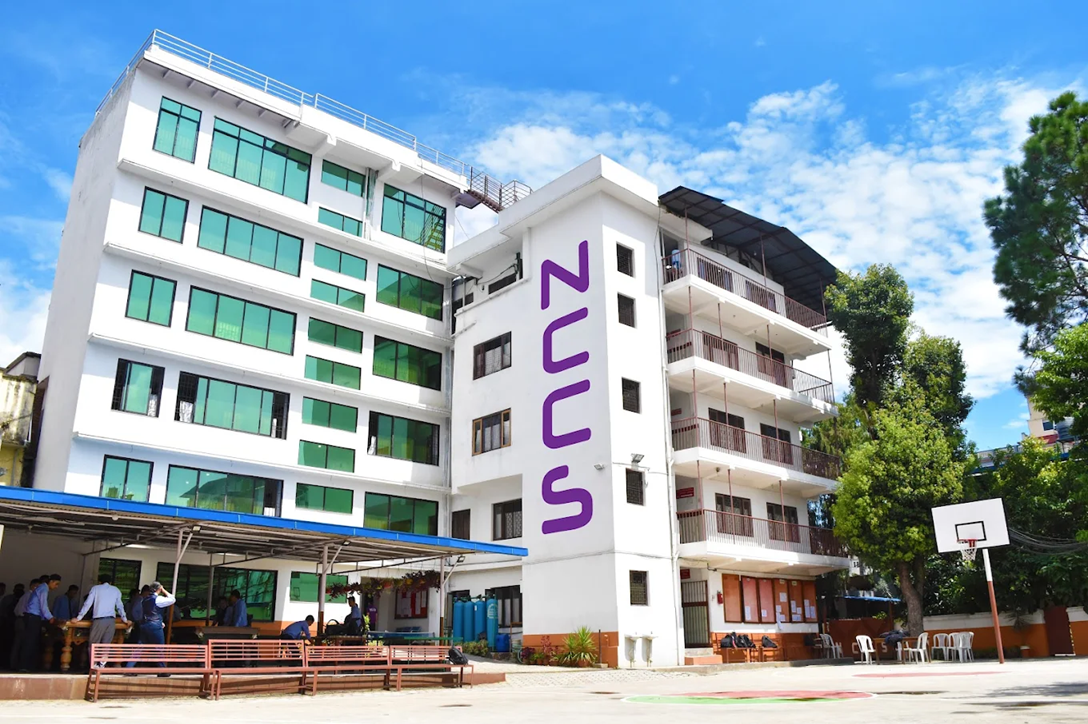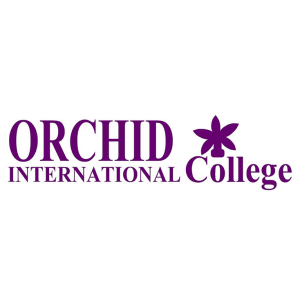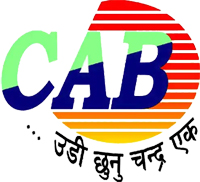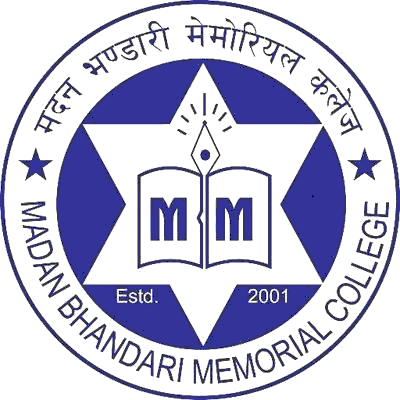Overview
BSc CSIT at National College of Computer Studies (NCCS), Paknajol, Kathmandu
BSc CSIT at National College of Computer Studies (NCCS), Paknajol, Kathmandu, runs under Tribhuvan University (TU), Institute of Science and Technology (IOST).
The program spans four years over eight semesters and totals 126 credit hours. NCCS lists BSc CSIT among its TU-affiliated programs and outlines semester-wise courses for prospective students.

Highlights
-
University and wing: Tribhuvan University, IOST
-
Duration and credits: 4 years, 8 semesters, 126 credit hours
-
Mode: Theory with lab components, projects, and internship
-
Campus: Paknajol, Kathmandu (NCCS, TU-affiliated)
Curriculum Details
NCCS presents the BSc CSIT “Course Cycle” semester by semester. Course names and codes below follow the campus outline; TU/IOST updates apply if issued for a given intake.
-
Semester I - CSC109 Introduction to Information Technology; CSC110 C Programming; CSC111 Digital Logic; MTH112 Mathematics I; PHY113 Physics
-
Semester II - CSC160 Discrete Structure; CSC161 Object Oriented Programming; CSC162 Microprocessor; MTH163 Mathematics II; STA164 Statistics I
-
Semester III - CSC206 Data Structure and Algorithms; CSC207 Numerical Method; CSC209 Computer Architecture; STA210 Statistics II
-
Semester IV - CSC257 Theory of Computation; CSC258 Computer Networks; CSC259 Operating Systems; CSC260 Database Management System; CSC261 Artificial Intelligence
-
Semester V - Design and Analysis of Algorithms; System Analysis and Design; Cryptography; Simulation and Modeling; Web Technology; Elective I
-
Semester VI - Software Engineering; Compiler Design and Construction; E-Governance; NET-Centric Computing; Technical Writing; Elective II
-
Semester VII - Advanced Java Programming; Data Warehousing and Data Mining; Principles of Management; Project Work; Elective III
-
Semester VIII - Advanced Database; Internship; Elective IV; Elective V
Electives listed by NCCS include Multimedia Computing, Wireless Networking, Image Processing, Knowledge Management, Society and Ethics in IT, Microprocessor-Based Design, Applied Logic, E-commerce, Automation and Robotics, Neural Networks, Computer Hardware Design, Cognitive Science, Information Retrieval, Database Administration, Software Project Management, Network Security, Digital System Design, International Marketing, Advanced Networking with IPv6, Distributed Networking, Game Technology, Distributed and Object-Oriented Database, GIS, Decision Support System and Expert System, Mobile Application Development, Real-Time Systems, Network and System Administration, Embedded Systems Programming, and International Business Management.
Objectives
-
Build sound understanding of computing principles and applied IT skills across programming, data, systems, and networks.
-
Develop careful problem solving, documentation standards, and teamwork through projects and internship.
-
Prepare students for entry-level roles in Nepali and regional IT services that value TU credentials and lab practice.
Scope
Graduates move into software development, web application work, database support, network and system administration, security operations support, and IT assistance across banks, colleges, firms, and public offices. Many pursue postgraduate study in computing, information systems, or related fields at TU or abroad.
Learning Outcomes
Students who complete BSc CSIT typically can:
-
Write, test, and document code in multiple programming paradigms.
-
Model data, write queries, and manage databases with security awareness.
-
Configure basic networks and interpret core services and protocols.
-
Build web applications and work with APIs.
-
Apply operating systems concepts and automation in practical tasks.
-
Plan and present projects in line with TU’s reporting and viva practices.
Skill Development Modules
-
Programming and algorithms: C and object-oriented programming, data structures, algorithmic analysis.
-
Platforms and data: DBMS, administration, data warehousing and mining.
-
Systems and networks: OS concepts, computer networks, network administration.
-
Web and apps: Web technologies, mobile application development (elective).
-
Security and governance: Cryptography, network security, e-governance.
-
Professional practice: Technical writing, project management options, internship.
Teaching Methodology
NCCS delivers TU programs through classes, supervised labs, project milestones, seminars, and presentations. The Paknajol campus provides computer labs, a hybrid library, and activity spaces that support assignment cycles, code reviews, and team work. Teaching follows the TU syllabus while using campus resources for structured practice.
Admission Requirements
TU/IOST runs a central entrance examination for BSc CSIT each intake. Typical eligibility includes completion of 10+2 or equivalent in the science stream with required subjects and passing the IOST BSc CSIT entrance test. Applicants should follow the latest IOST notice for exact criteria, documents, and dates, then complete NCCS application steps as instructed.
Career Opportunities
-
Software and web: junior developer, QA/testing, frontend or backend support.
-
Systems and data: database support, system administration, help-desk.
-
Networks and security: associate network admin, SOC support roles.
-
Public and social sectors: IT support roles in local units, NGOs/INGOs, education offices.
Project work and internship provide a portfolio to present to employers during entry-level hiring.
Scholarships and Financial Aid
TU and campuses publish scholarship updates for each session. Policies may include merit and need considerations and reserved categories as applicable. Applicants should track the latest intake notice and NCCS announcements for forms, deadlines, and renewal rules.
Why Choose This Course?
-
TU-approved curriculum with 126 credits across programming, systems, networks, databases, AI basics, and security.
-
Semester plan that mixes lectures, labs, a major project, and internship.
-
NCCS listing of BSc CSIT with semester-wise course cycle helps you plan study steps on a Kathmandu campus that runs multiple TU IT programs.
Conclusion
BSc CSIT at NCCS offers a TU-standard pathway that connects classroom topics to practical labs, projects, and an internship. Students who want a structured, semester-wise IT degree in Kathmandu can review NCCS’s course cycle, verify entrance and eligibility in the current IOST notice, and apply within the stated timelines.























